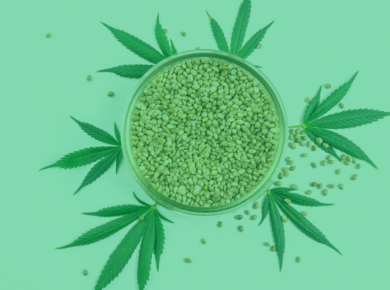CBN (Cannabinol) and THCV (Tetrahydrocannabivarin) stand as unique cannabinoids, both originating from the cannabis and hemp plants, each presenting distinct properties steered by their individual chemical structures.
CBN, known to be mildly psychoactive, emerges through the degradation of THC, renowned for producing the classic ‘high’ associated with cannabis. Often discovered in aged cannabis, CBN has gained attention for its potential sedative attributes.
In contrast, THCV, a homologue of THC, possesses a comparable structure yet delivers disparate effects. Unlike THC, THCV might offset some of THC’s psychoactive impacts and is acknowledged for its potential appetite-suppressing capabilities.
These cannabinoids, although sharing a common origin, diverge significantly in their chemical structures, sources, and prospective effects, offering a wide array of opportunities for research and exploration.
Many States allow hemp derived cannabinoids under the 2018 Farm Bill as long as they contain less than .3% D9 THC. Some States have explicitly banned cannabinoids like Delta 8, so check your local rules and regulations before purchasing.
Here’s the rules for Kush.com and more details
Frequently Asked Questions (FAQs)
What Sets CBN and THCV Apart? CBN and THCV, both cannabinoids found within the cannabis plant, distinguish themselves through their properties. CBN, mildly psychoactive, is produced when THC degrades, especially within aged cannabis. In contrast, THCV, which mirrors THC structurally but offers differing effects, is acknowledged for potentially mitigating THC’s psychoactive effects and may suppress appetite.
How Are CBN and THCV Formulated in Cannabis? CBN develops as THC ages and degrades, typically when cannabis is exposed to prolonged heat or oxygen. Conversely, THCV originates from a process known as biosynthesis within the plant, wherein enzymes convert CBGVA (cannabigerovarinic acid) into THCV.
What Might Be the Effects of CBN and THCV? CBN is renowned for its potential sedative properties, while ongoing research seeks to fully comprehend its effects. THCV is recognized for its potential to suppress appetite, although effects can inherently vary across individuals due to unique body chemistry.
Are CBN and THCV Present in All Cannabis Strains? Not all strains contain notable levels of CBN or THCV. CBN is typically found in aged cannabis, arising as THC degrades. THCV is more prevalently found in certain African sativa strains. Checking a product’s lab report to identify contained cannabinoids is advisable.
What is the Legal Status of CBN and THCV? The legality of CBN and THCV varies regionally. Often, if derived from hemp (cannabis with under 0.3% THC), they are legal. However, due to the fluctuating nature of laws, always consult current regulations in your locality.
Shop
Similar Product Searches You Might Be Interested In:



